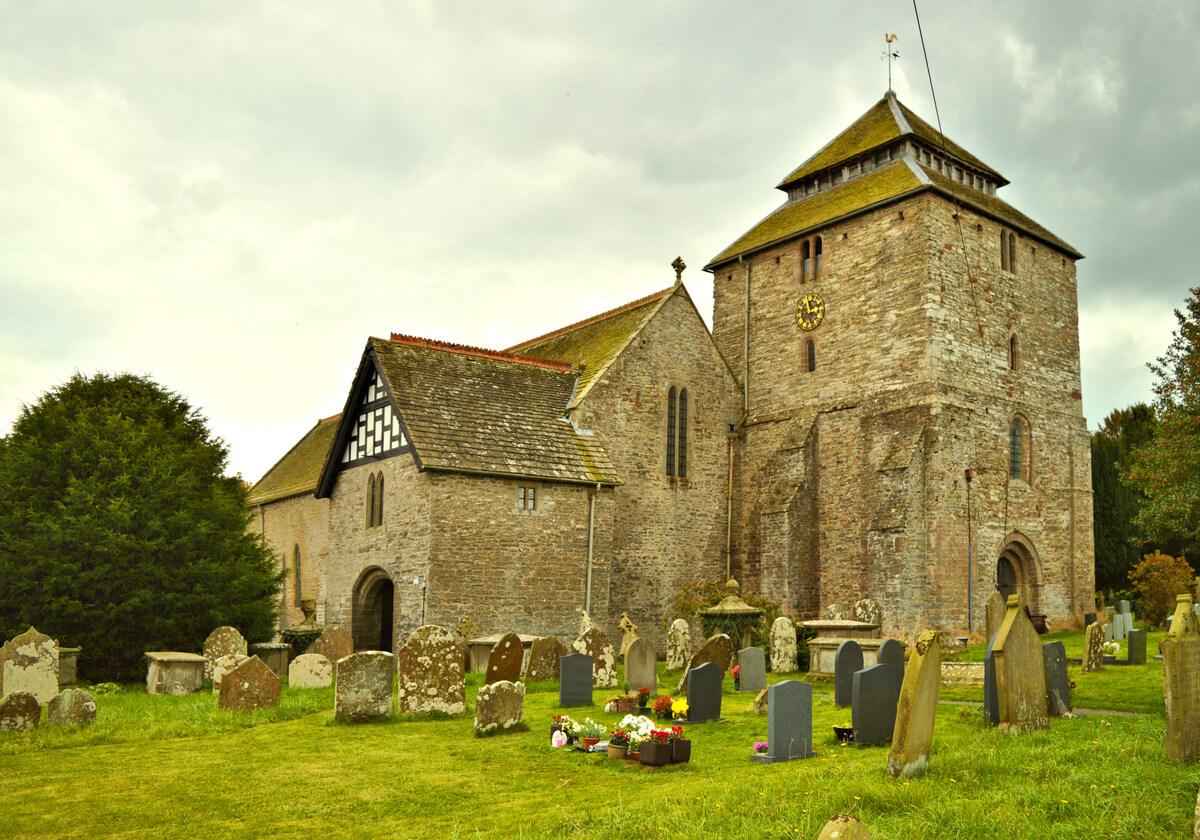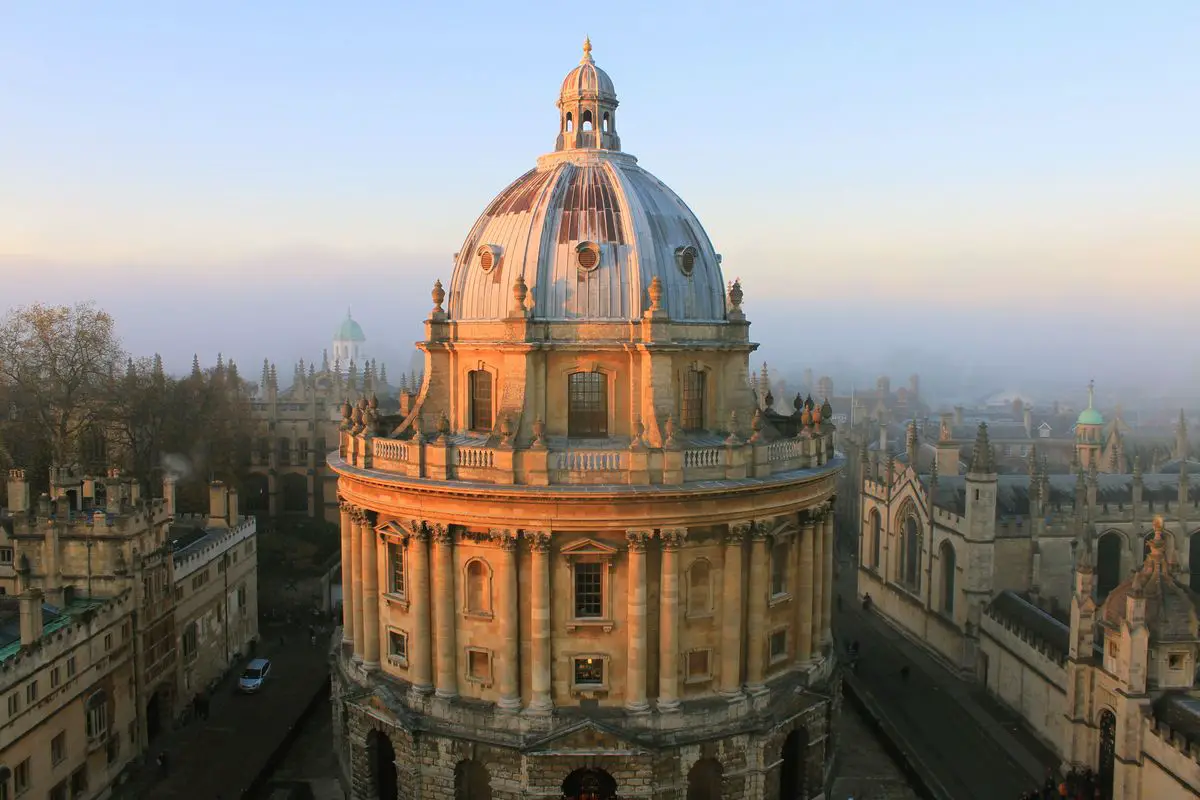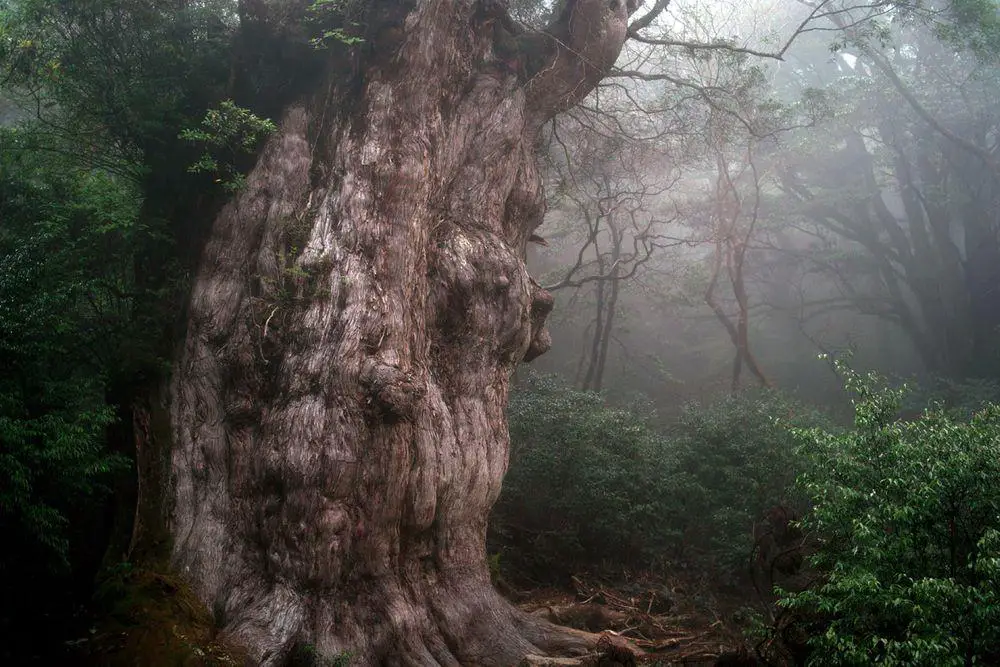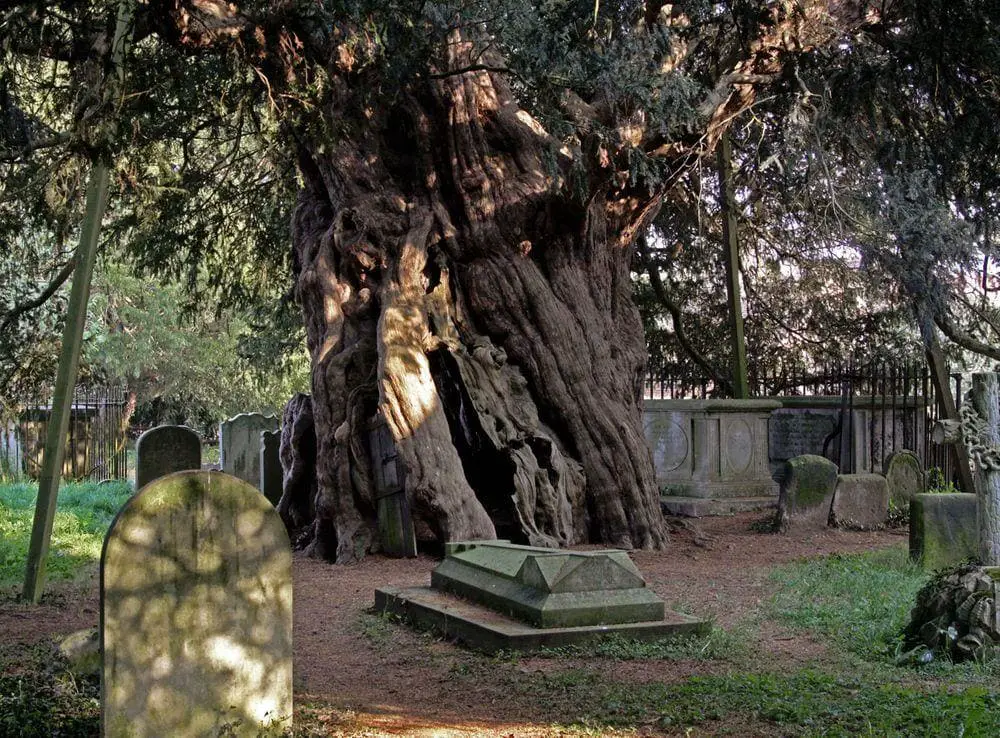World 🢖 Europe 🢖 United Kingdom 🢖 England 🢖 Shropshire
Wonder
Ancient yew in Clun

 In short
In short
Today just a few smaller trunks remain of the ancient yew next to the St. George’s Church in Clun. Nevertheless, these small trees belong to a very ancient, once enormous yew, that, most likely, is significantly older than the church.
 27.3%
27.3%
GPS coordinates
Location, address
Species
Circumference
Map of the site
If you see this after your page is loaded completely, leafletJS files are missing.
 In detail
In detail
Clun is an ancient village that stands close to the ancient Welsh border – Offa’s Dyke, some 4.5 km west of it. In this picturesque village, two structures stand out: the ruins of Clun Castle and the ancient St George’s Church. In the churchyard of St George’s Church once stood a giant yew tree.
St George’s church
The imposing St George’s church stands on the site of an ancient Anglo-Saxon church that was constructed before the Norman Conquest (1066). There is a possibility, that its tower at least partly is the original Saxon structure. The church is an outstanding structure with interesting works of art.
Around the church is a churchyard with rounded borders – it, most likely, has existed since the Saxon times.
The ancient yew in Clun
In the churchyard, to the north of the church, stands a tree that today looks rather insignificant: it consists of several larger sprouts that grew out from the trunk of the former giant yew tree.
The measurements (1998. 1.) show that this former yew, a male tree, had a circumference of some 10.42 m at the ground level.
The old trunk of this tree collapsed long ago – it, most likely was as old as the Saxon church or even older. New wood developed over three fragments of the ancient trunk, gradually developing multiple twigs and now, in 2020ies it is nearly impossible to measure this chaos.
The tree grows on a small mound. It is characteristic that ancient yew trees in churchyards grow on such small mounds. A possible explanation for this is that, while digging the graves, the soil is piled around the tree. Elsewhere it is levelled, but it stays around the tree and gradually, throughout the centuries a mound forms.
In the churchyard are two more large yew trees – with a circumference of 5.9 m at the ground level (1998, after this many sprouts formed) and 4.8 m at the ground level (2015).
References
- Yew/Yews at Clun England, Ancient Yew Group. Accessed on December 5, 2023.
- St George, National Churches Trust. Accessed on December 5, 2023.
Ancient yew in Clun is included in the following article:
 Linked articles
Linked articles

Wonders of England
The natural and cultural wonders of England are very diverse and here are found some of the world’s most impressive landmarks in several categories, such as churches and museums.

Trees
The category includes some of the most impressive and interesting separate trees in the world. The total number of tree species in the world still is a wild guess – maybe 10,000 and maybe 100,000 but most likely somewhere in between. Every month there are reported new tree species from the whole world, including Western Europe.

Wonders of the United Kingdom
Throughout many centuries the United Kingdom has enjoyed relative political stability and wealth. As a result, humans have created here countless amazing and well-preserved values of art and history.
 Recommended books
Recommended books
The God Tree
The God Tree is a great read and will make people think again and again about Yews’ – David Bellamy, the Naturalist. This is the first book to take up the quest for the Golden Bough since JG Frazer’s classic study in 1915 with the discovery of the bough growing once more, as the rare adornment of a small number of ancient Yews.
The Ancient Yew: A History of Taxus baccata
The gnarled, immutable yew tree is one of the most evocative sights in the British and Irish language, an evergreen impression of immortality, the tree that provides a living botanical link between our own landscapes and those of the distant past. This book tells the extraordinary story of the yew’s role in the landscape through the millennia, and makes a convincing case for the origins of many of the oldest trees, as markers of the holy places founded by Celtic saints in the early medieval ‘Dark Ages’.



